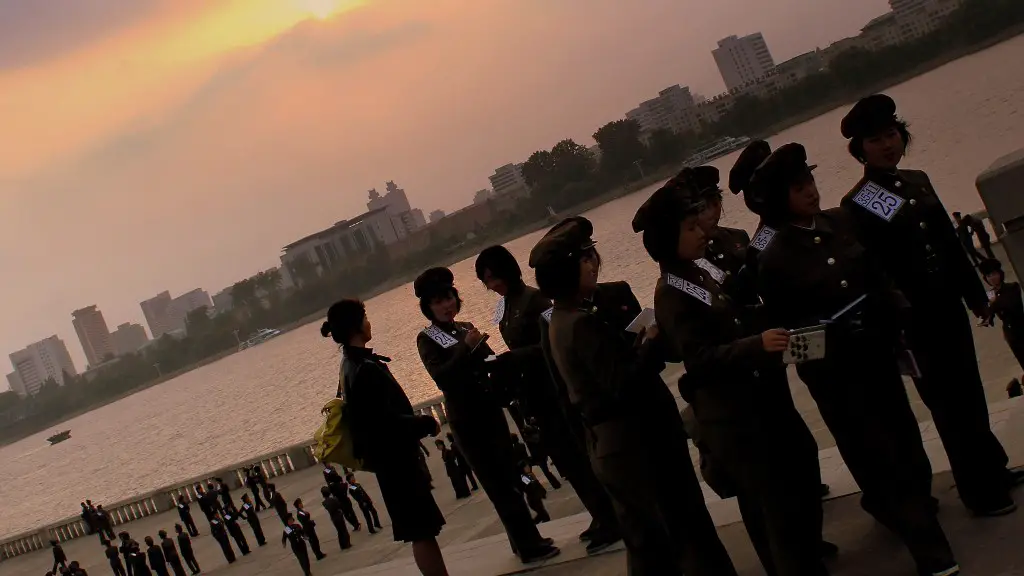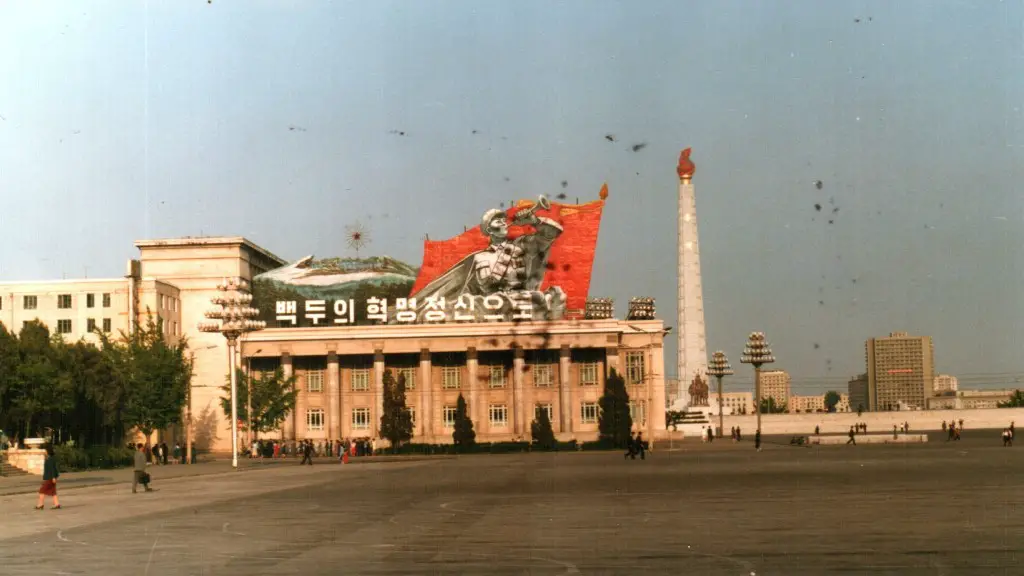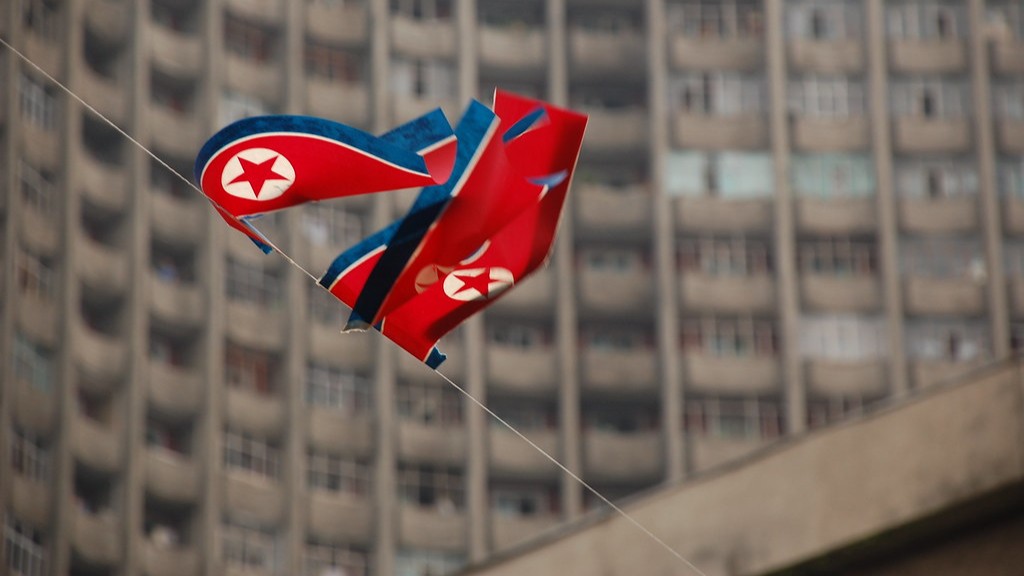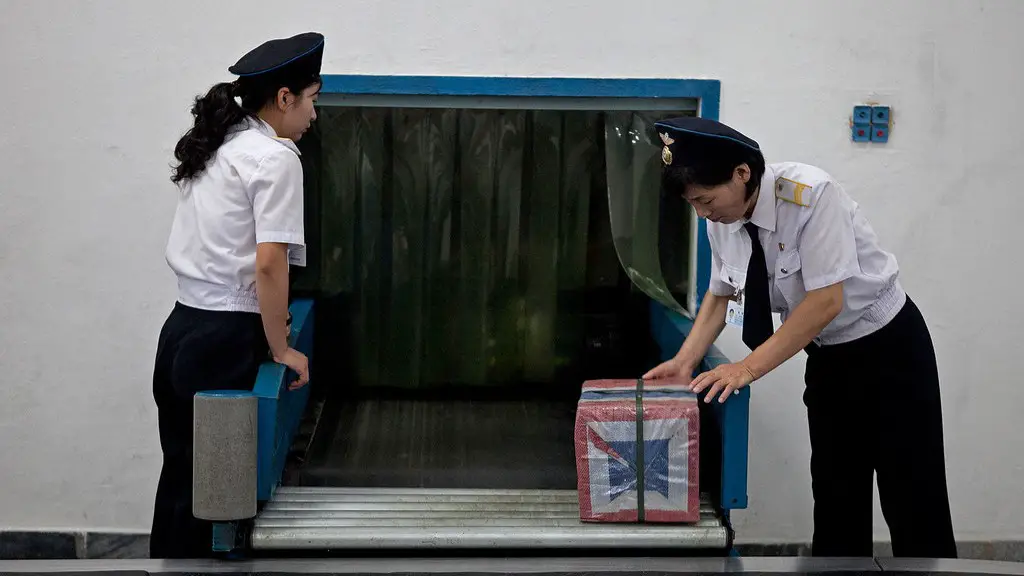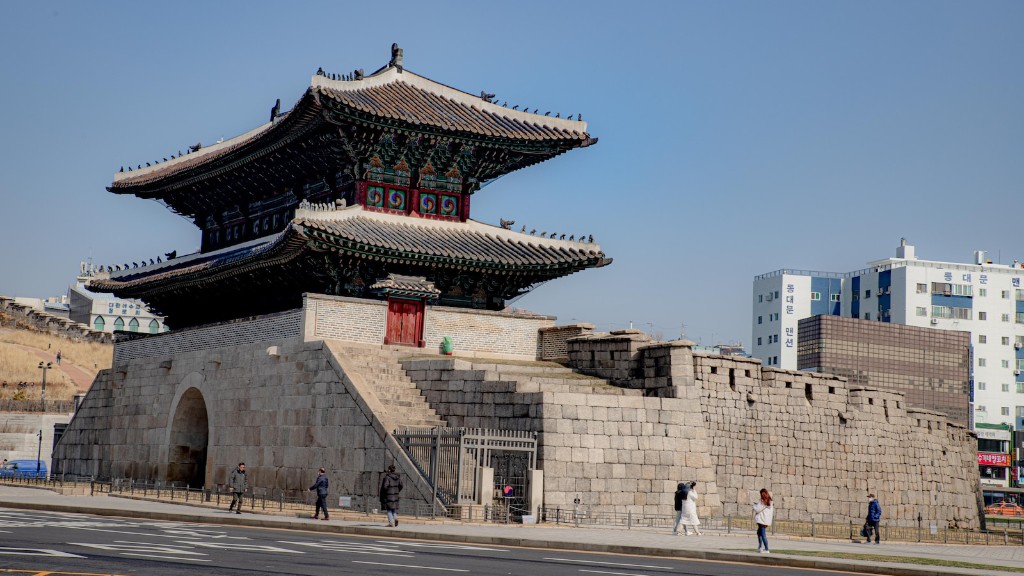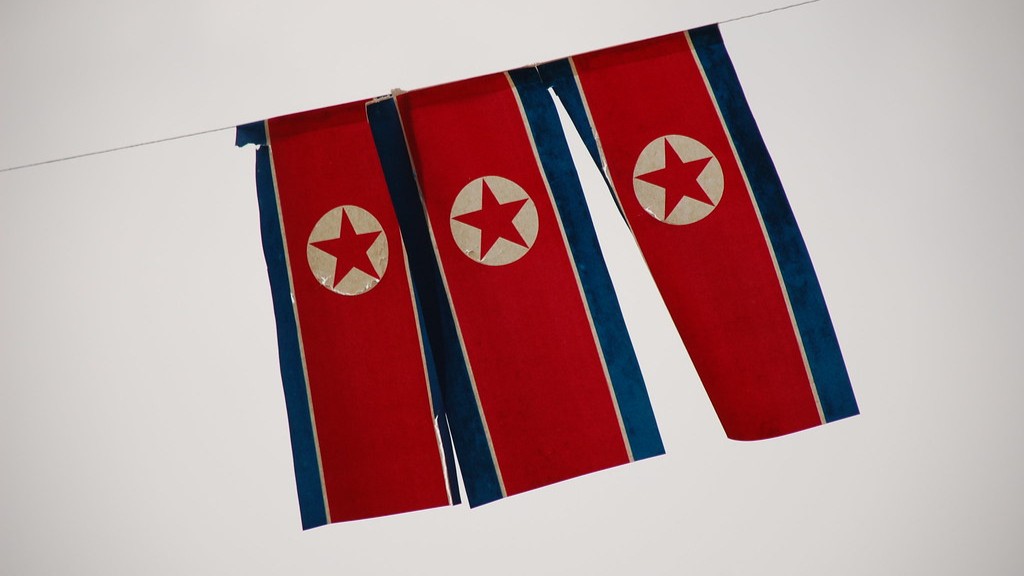Korea has been divided since its liberation from Japanese occupation in 1945 and the end of World War II. The Korean peninsula was divided into two countries, North Korea and South Korea, along the 38th parallel by the United Nations (UN).
The division of Korea was a result of a Cold War struggle between the Soviet Union and the United States to gain political influence in the region. The Soviet Union supported the creation of a communist government in the North and the United States supported the establishment of a capitalist government in the South. As a result, the divide between the two states has formed a lasting line between North and South Korea.
The line of division between the two countries caused political and economic divisions as well. North Korea has organized society based on state control and centralized planning, while South Korea has embraced a democratic form of government. Economically, North Korea has largely remained isolated and underdeveloped, while South Korea has become a leading export economy in Asia.
The division between North and South Korea can be traced back to the end of the nineteenth century. In 1895, the Joseon dynasty was cut by the Japanese which aimed to colonize Korea and ultimately unify the peninsula. Even after Korea was liberated in 1945, the Cold War rivalry between the Soviet Union and the United States kept the peninsula divided. On August 15th, 1948, the United Nations created the Republic of Korea and established the Demilitarized Zone (DMZ)m dividing the two countries. Since then, the DMZ has remained the most heavily militarized border in the world.
Since the division of Korea, the two countries have been in a near constant state of tension and locked in a constant struggle for power. In 1950, North Korea launched an invasion of South Korea and the peninsula was at war for nearly three years. In 1953, an armistice was declared and the two countries have been technically at war ever since. Despite the constant tension, both North and South Korea have participated in diplomatic efforts to reunify the peninsula and create binding peace treaties.
The division of Korea into North and South has created significant tensions in the region and has been the cause of a great deal of conflict and suffering. Despite diplomatic efforts to reunite the two countries, the division remains an unresolved issue and has had a profound impact on both the Korean people and the region.
Government, Economy and Society of North Korea
North Korea is ruled by the authoritarian regime of the Kim family. The government is highly centralized, employing a rigid imperial system of control. Political power is strictly divided along lines of loyalty to the Kim family. The government has imposed strict restrictions on freedom of expression and access to information. Self-censorship is pervasive, and independent media is prohibited.
The economy of North Korea is state-controlled and centralized. The country’s main source of income is derived from the mining and exporting of minerals such as iron, coal and gold. The economy has been limited due to international sanctions, as well as the government’s policy of prioritizing military expenditures. As a result, the North Korean economy remains highly isolated and impoverished.
North Korean society is characterized by strict control, limited freedom and severe censorship. The government strictly controls education, cultural activities and social mobility. North Koreans are largely isolated from the rest of the world and access to international news and media is heavily restricted. The country has also been the site of numerous human rights violations and abuse of power by the government.
Government, Economy and Society of South Korea
South Korea is a democracy ruled by elected officials and has held free and fair elections since 1948. South Korea also has a strong civil society, where citizens are able to freely express their views and take part in political activities. South Korea has also implemented some important reforms in the past few decades, including judicial reform, the decriminalization of certain offenses, and the decriminalization of politics.
The economy of South Korea is highly developed and is one of the most competitive export economies in Asia. It is one of the largest and most diversified economies in the world, and it is heavily reliant on exports. South Korea is also one of the most technologically advanced countries in the world and is home to some of the world’s leading companies, such as Hyundai and Samsung.
South Korean society is characterized by high levels of social mobility, awareness of global trends and access to international information. South Koreans are highly educated and well-connected to the rest of the world. South Korea is also an attractive destination for foreign students and professionals looking to develop their career.
Influence of North and South Korea in the World
The division of Korea has had a lasting impact on the world. The two countries have become major strategic players in the region and have been involved in numerous diplomatic and trade agreements. The United States and South Korea are key allies and have a long-standing military and economic partnership. North and South Korea are also members of the United Nations and other international organizations.
The two countries have also been involved in a number of military and political disputes. North Korea has continued to develop nuclear weapons and has been heavily sanctioned by the international community. North Korea has been accused of engaging in aggressive military tactics and has frequently been the target of international criticism and sanctions.
North and South Korea have also had a major impact on global culture. South Korea has long been known for its technological advances, its vibrant entertainment industry, and its global music and film industry. North Korea is seen as an isolated state with a heavy emphasis on state control and propaganda. The two countries have also had a major impact on the global economy, with South Korea becoming one of the world’s leading exporters.
Relation Between South and North Korea
The relations between the two Koreas have been at times tumultuous, but there have been moments of cooperation as well. The two countries have engaged in a number of diplomatic talks and exchanged delegations in the past. North and South Korea signed a peace treaty in 2018, marking the first time the two countries had agreed on a unified approach to peace in the region.
The two countries have also made limited progress on a number of economic issues. North Korea agreed to close its nuclear reactor in 1992 and has since opened a number of joint economic projects, such as the Kaesong Industrial Zone. South Korea has also provided humanitarian aid to North Korea and has sent food and medical supplies to the country.
Despite the progress made in recent years, the relationship between the two Koreas remains fragile. Tensions have returned in recent years due to military exercises, nuclear testing and provocative rhetoric from both sides. The future of the two countries will largely depend on the continued engagement of the international community and the willingness of both countries to move towards a peaceful resolution.
Impact on the People of North and South Korea
The division of the Korean peninsula has had a lasting impact on the lives of Koreans both North and South. Many families have been separated since the division and remain divided, unable to reunite due to the continuing tensions between the two states.
The two countries have been divided since 1945 and the impact of the division is still felt today. North Korea is an impoverished and isolated state, while South Korea is an economic powerhouse. Cultural and political differences have further separated the two countries. Even after decades of separation, the people of North and South Korea continue to share a common language and culture.
The reunification of the Korean peninsula is a long-term goal shared by many Korean people. Despite the difficulties, the Korean people remain hopeful that one day, North and South Korea will become one once again.
